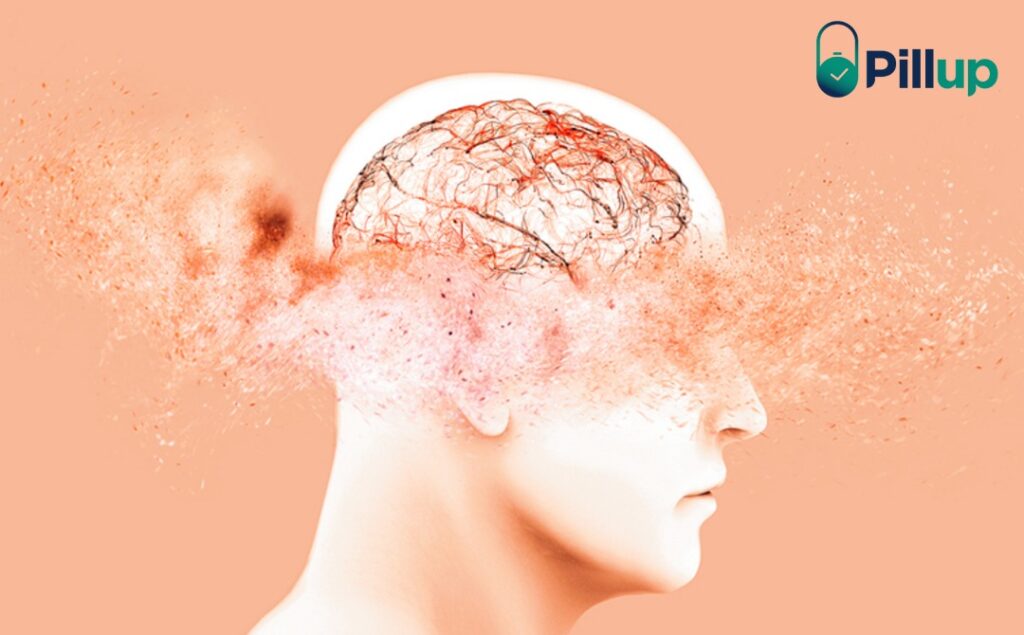Alzheimer’s disease is a growing concern for individuals and families alike as it robs people of their memories and independence. While it is a common condition, its causes remain elusive to this day. However, early diagnosis and appropriate treatment can help to manage the symptoms and improve the quality of life of individuals with Alzheimer’s disease.
Alzheimer’s disease is a progressive neurodegenerative disorder affecting millions of people worldwide. According to the World Health Organization (WHO), approximately 50 million people worldwide have dementia, with 60-70% of cases attributed to Alzheimer’s disease.
The disease is characterised by the buildup of abnormal protein fragments in the brain called amyloid plaques and tau tangles, which damage and kill nerve cells, leading to cognitive decline and memory loss. Although Alzheimer’s is a complex and multifactorial condition, researchers have identified several factors contributing to its development.
Symptoms of Alzheimer's disease
Alzheimer’s is a serious health disorder affecting the brain, leading to cognitive decline and memory loss. The symptoms of Alzheimer’s can vary from person to person but generally worsen over time as the disease progresses. Here are some common symptoms of Alzheimer’s disease:
- Memory loss: One of the hallmark symptoms of Alzheimer’s disease is memory loss, particularly short-term memory. Individuals with Alzheimer’s disease may forget important dates, events, or conversations and repeat themselves frequently.
- Difficulty with language and communication: People with Alzheimer’s disease may have trouble finding the right words, following conversations, or expressing themselves coherently.
- Confusion and disorientation: Individuals with Alzheimer’s disease may become easily disoriented, particularly in unfamiliar surroundings, and may have trouble recognizing people they know.
- Poor judgement and decision-making: As Alzheimer’s disease progresses, individuals may have difficulty making decisions or judgments, particularly in complex situations.
- Changes in mood or behaviour: Alzheimer’s disease can cause changes in mood or behaviour, like depression, anxiety, aggression, or social withdrawal.
- Difficulty with daily tasks: Individuals with Alzheimer’s disease may have difficulty completing daily activities, such as bathing, dressing, or preparing meals.
Diagnosis of Alzheimer's disease
A diagnosis of Alzheimer’s disease is typically made by a doctor or neurologist who specialises in dementia. The diagnostic process for Alzheimer’s disease may involve a variety of tests and assessments, including:
- Medical history and physical exam: The doctor will ask about the person’s symptoms, medical history, and any medications they are taking. They will also perform a physical exam to check for signs of other medical conditions that could be causing the symptoms.
- Cognitive tests: These tests assess memory, thinking, and language skills. The most commonly used cognitive test for diagnosing Alzheimer’s disease is the Mini-Mental State Examination (MMSE).
- Brain imaging: Magnetic resonance imaging (MRI) or computed tomography (CT) scans can help to rule out other conditions that can cause dementia symptoms. They can also show changes in the brain that are characteristic of Alzheimer’s disease.
- Neuropsychological tests: These tests assess a person’s cognitive function in more detail, including memory, attention, language, and problem-solving skills.
Effective Treatment for Alzheimer's disease
The goal of treatment is to slow the progression of the disease, manage cognitive symptoms, and improve overall well-being.
- Medications: There are several medications available that can help to manage the symptoms of Alzheimer’s disease. These medications work by increasing the levels of certain chemicals in the brain that are involved in memory and learning. They can help to slow the progression of the disease, reduce symptoms, and improve overall cognitive function.
- Non-drug treatments: There are several non-drug treatments that can help to manage the symptoms of Alzheimer’s disease. These include cognitive training, physical activity, and social engagement. Cognitive training can help to improve memory and thinking skills, while physical activity can help to improve overall physical health and well-being. Social engagement can help to reduce feelings of isolation and improve overall mood.
- Supportive therapies: Supportive therapies can help to manage the symptoms of Alzheimer’s disease and improve the overall quality of life. These may include occupational therapy, speech therapy, and music therapy. Occupational therapy can help to improve everyday skills, such as dressing and grooming. Speech therapy can help to improve communication skills, while music therapy can help to reduce anxiety and improve overall mood.
Strategies for managing the symptoms of Alzheimer's disease
In addition to medical treatments, there are several strategies that can help to manage the symptoms of Alzheimer’s disease and improve the overall quality of life. Here are some tips for managing the symptoms of Alzheimer’s disease:
- Maintain a healthy lifestyle: Eating a healthy diet, getting regular exercise, and getting enough sleep can help to improve overall physical and mental health, and may also help to slow the progression of Alzheimer’s disease.
- Stay engaged: Staying engaged in activities that are meaningful and enjoyable can help to reduce feelings of isolation and improve overall well-being. This may include hobbies, social activities, or volunteer work.
- Simplify daily routines: Simplifying daily routines can help to reduce stress and confusion for individuals with Alzheimer’s disease. This may include using visual cues, creating a predictable routine, and breaking down tasks into smaller steps.
- Use memory aids: Memory aids, such as calendars, to-do lists, and reminders, can help to improve memory and reduce confusion. These aids may be particularly helpful in the early stages of Alzheimer’s disease.
- Seek support: Support from family, friends, and support groups can help to reduce feelings of isolation and improve overall well-being. Caregivers may also benefit from support groups and respite care.
Preventions of Alzheimer's disease:
Although there is no known cure for Alzheimer’s disease, there are certain methods that can be used to help lower the risk of developing it. Here are some of the preventive measures you can take:
- Exercise regularly: Exercise helps improve brain function and prevents age-related cognitive decline. Aim for at least 30 minutes of exercise a day, such as walking, jogging, swimming or cycling.
- Eat a healthy diet: Eating a balanced diet of nutrient-rich fruits, vegetables and whole grains can help protect your brain from age-related decline. Avoid processed foods high in sugar and fat.
- Avoid Smoking: Smoking increases your risk of developing Alzheimer’s disease, as well as other serious health conditions.
- Manage stress levels: Chronic stress can lead to mental health problems and increase the risk of developing Alzheimer’s disease. Take time each day to relax, practice mindfulness or do something you enjoy.
- Get adequate sleep: Research shows that getting seven to eight hours of quality sleep every night helps to improve brain function and protect against cognitive decline.
- Stay mentally active: Challenging your mind with activities like puzzles, reading, writing or learning a new language can help keep it sharp and prevent age-related decline.
Conclusion:
Alzheimer’s disease is a progressive brain disorder affecting millions worldwide. With proper management and support, individuals with Alzheimer’s disease can continue to live meaningful and fulfilling lives. Here at PillUp, we understand how difficult it can be to manage the symptoms of Alzheimer’s disease and the impact it can have on the quality of life of those affected by it. Our presorted medication can help to make managing your medications easier. We understand the importance of having support throughout this journey and are here for you every step of the way.



